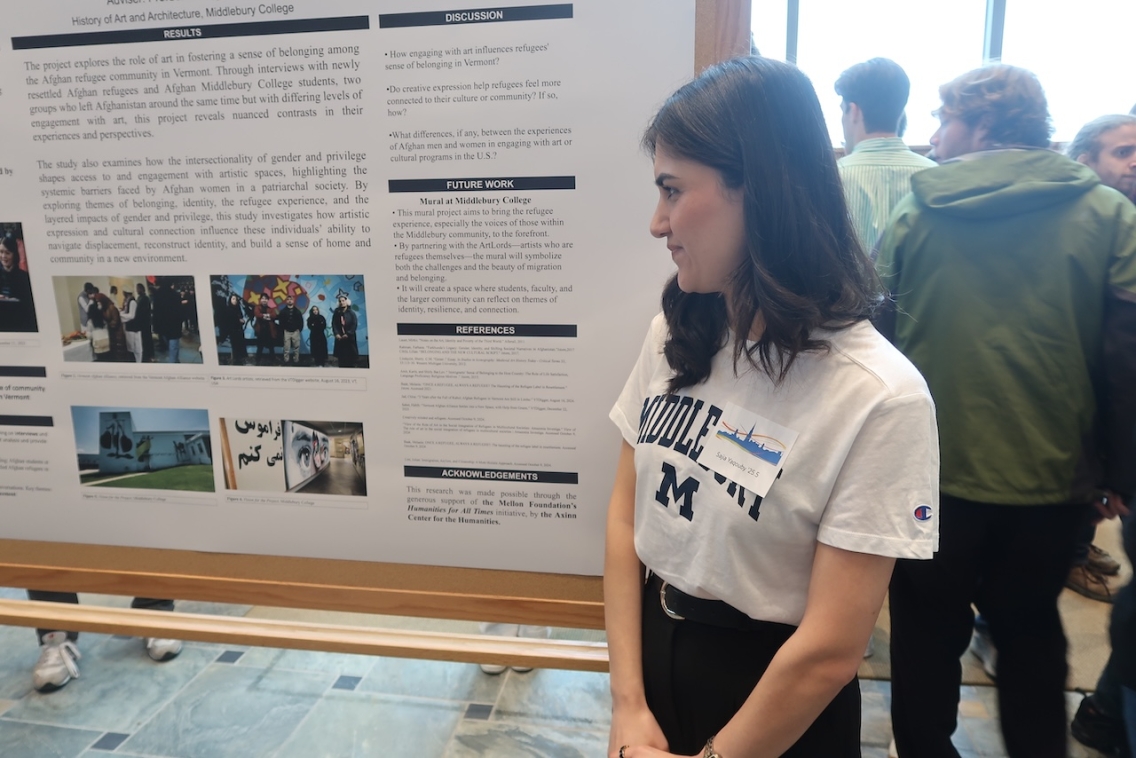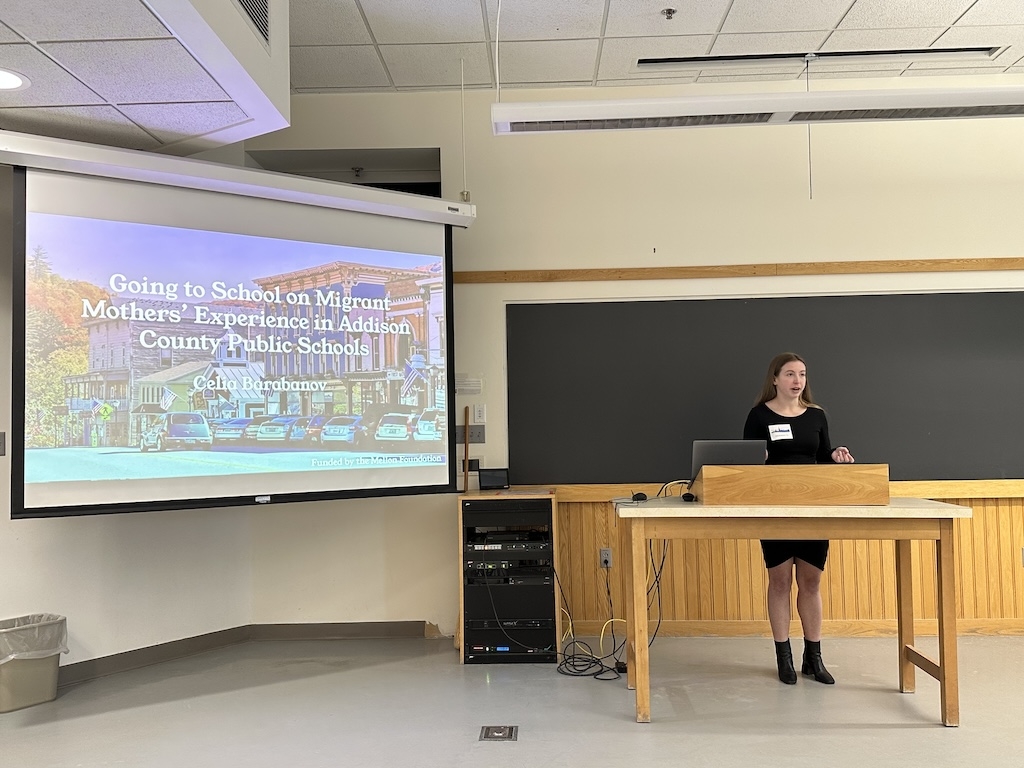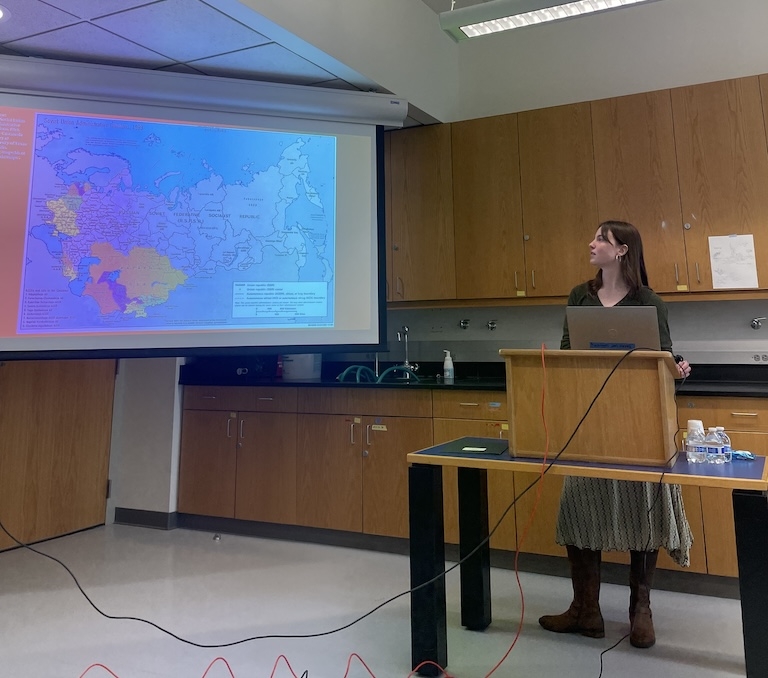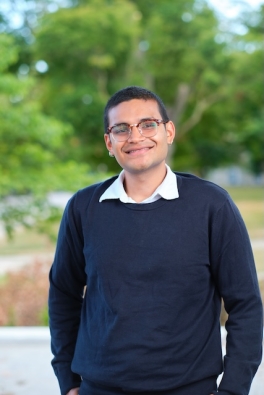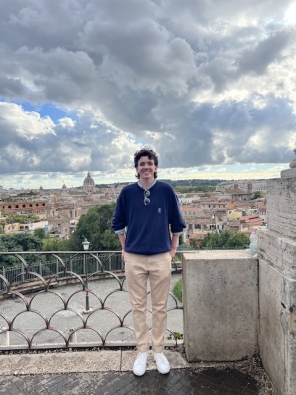Mellon Student Research
Through the Mellon Humanities For All Times grant, Middlebury College is providing fifteen Student Research Fellowships, five each year. Supervised by a faculty sponsor, students are working on researching and writing on topics about migrant justice.
Mellon Student Fellows 2025-2026
Rodaba Husseini
My research examines the lives and narratives of Afghan refugee women living in Burlington, VT, through ethnographic accounts spanning multiple generations. It explores how memory and recollections of life in Afghanistan—whether joyful or traumatic—shape the ways these women experience and find meaning in life in the United States today. By analyzing the socio-cultural processes through which Afghan women refugees construct a sense of place and belonging, I aim to understand what their experiences reveal about the broader social and cultural landscape of Vermont, particularly as it relates to immigrant, migrant, and refugee communities. Ultimately, I approach this project with the goal of understanding Afghan women’s experiences both as individuals and as members of an evolving diasporic community.
- Email:
- rhusseini@middlebury.edu
Yuvraj Shah
Since 1880, British colonial policy, economic migration, and indentured servitude resulted in a large South Asian immigrant community in East Africa. With a peak population of around 180,000 in 1968, the Kenyan Asian diaspora is a global community of migrants who have a generational connection to Kenya, living in and out of the country. For my research, I travelled to Kenya and the UK and interviewed 46 members of this community, asking them the question “what makes you Kenyan.” Using existing scholarly research, my interviews, and literature about this diaspora, I am determining the different ways this diaspora claims nationhood and belonging in Kenya.
- Email:
- yshah@middlebury.edu
Lima Abed
My project explores the gendered experiences of Afghan women undertaking irregular land migration from Afghanistan toward Europe and the United States. It examines two primary routes: the Central and Eastern Mediterranean pathway through Iran, Turkey, and Greece, and the Latin American corridor through Brazil and Mexico leading to the U.S. border.
While extensive literature documents irregular migration patterns, few studies focus on women’s voices or on their experiences of land migration and the forms of resistance that shape their journeys. Drawing on qualitative interviews with Afghan women migrants and secondary data from international organizations and other scholarly sources, this project highlights how Afghan women navigate displacement and systems of control.
The project aims to contribute to feminist migration studies by showing how intersectional factors such as gender, nationality, legal status, and poverty produce vulnerability, while also revealing moments of agency and resilience.
- Email:
- labed@middlebury.edu
Hugh Hutchinson
My research for the Mellon Migration Fellowship explores the theology of the contemporary Sanctuary Movement. The Sanctuary Movement began in the early 1980s as a string of religious leaders through Mexico and the U.S. formed a network for safe passage northward for migrants from El Salvador and Guatemala fleeing violent civil wars. As the U.S. government refused to acknowledge their legitimate claims to asylum and sought to convict those assisting them, sanctuary workers’ legal obligations were eclipsed by their Christian, moral ones.
I am investigating the state of Sanctuary theology today, as immigration enforcement agencies have pursued, harassed, and deported migrant populations in the U.S. with unprecedented publicity and aggression. In doing so, I have been seeking out and conducting interviews with pastors who lead Sanctuary churches to gain a deeper understanding of what motivates American Christians to align themselves with migrants at risk of deportation. The founding fathers of the movement adamantly articulated why their moral compass pointed towards Sanctuary, as publicity was a core pillar of their work. They inspired people across the nation and world, regardless of religious affiliation, to declare their places of worship, schools, cities, counties, or even states as Sanctuary spaces. However, circumstances have changed over four decades; civic engagement and church membership have steadily declined, migrant justice issues have become increasingly secularized, and thus it is easy, but mistaken, to overlook the role of American Christians in migrant justice work. It is vital to understand what energizes Christians to be responsive to migrant justice issues under the second Trump administration because the services they provide are unique to religious spaces and are guided by that religiosity.
- Email:
- hfhutchinson@middlebury.edu
Sorina Johnston
IGS Global Migration and Diaspora Studies Major, Spanish Concentration
Liminality and Social Legibility: Poetics of Migration
This project explores the concepts of belonging and the fragmented self that occur in migrant literature, analyzing how poetic devices communicate liminality and defy systemically-imposed one dimensionality.
- Email:
- sjohnston@middlebury.edu
Mellon Student Fellows 2024-2025
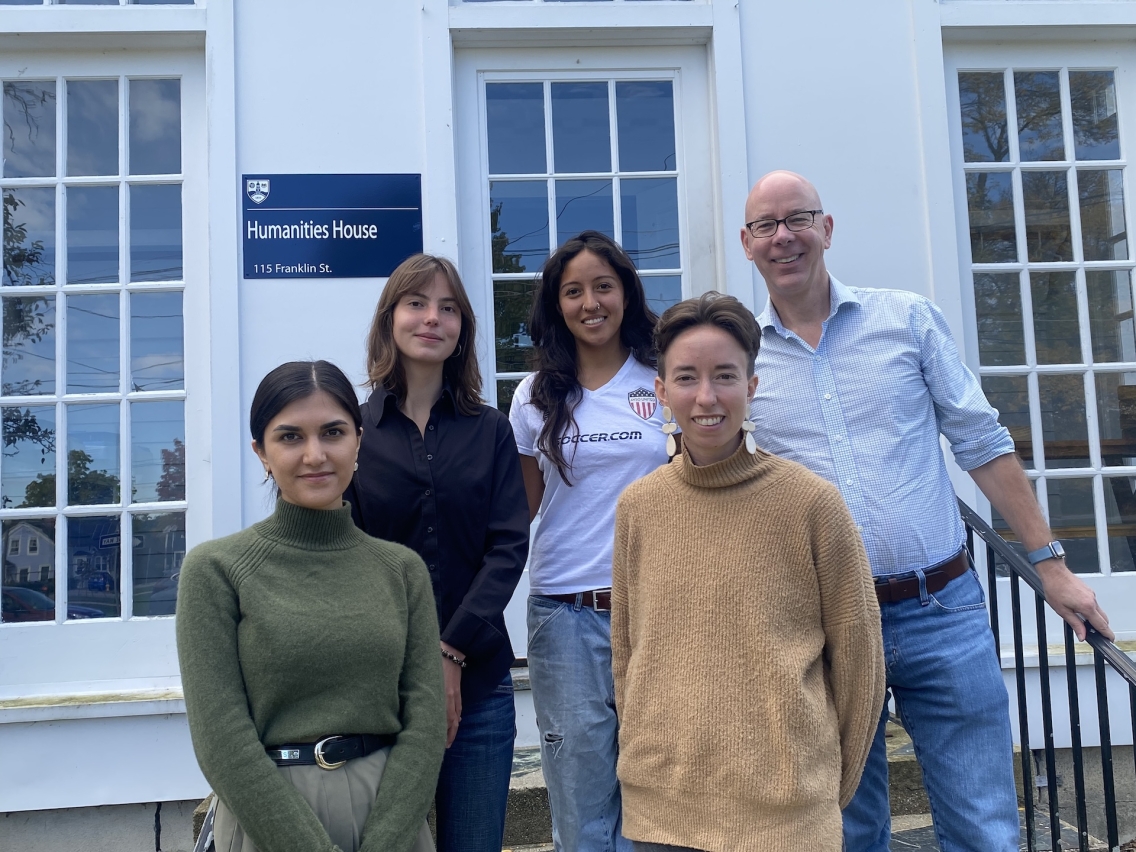
Student Research Fellowships
Sajia Yaqouby, Maya Watson, Citlali Lopez, and Celia Barabanov (not pictured) received research grants to write senior theses focused on migration. They gathered with the Mellon Postdoctoral Fellow, Catey Boyle, and two of the Mellon Grant’s Principal Investigators, Ian Barrow and Marion Wells, to discuss their research over lunch in October 2024.
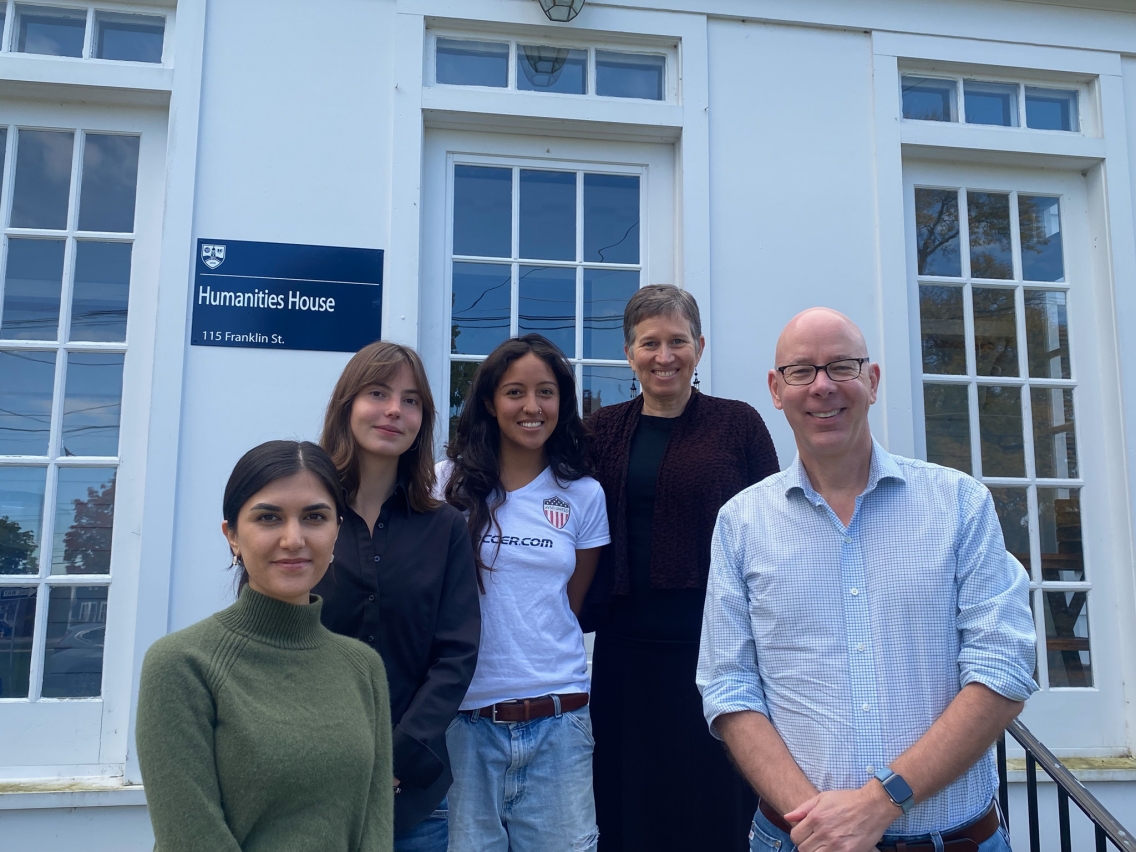
Middlebury Spring Student Symposium - April 2025
The Spring Student Symposium is an all-campus event that provides students an opportunity to showcase their academic projects to a campus-wide audience in a professional conference setting. Mellon Student Fellows presented innovative community-based research on migration, identity, and belonging among members of the Afghan and Latinx migrant communities in Vermont, as well as historical research on migration and identity in 20th-century Kazakhstan. Their research was made possible through the generous support of the Mellon Foundation’s Humanities For All Times initiative, and Middlebury’s Axinn Center for the Humanities (through the Mellon-funded project “Migrant Justice in Vermont and Beyond”).
